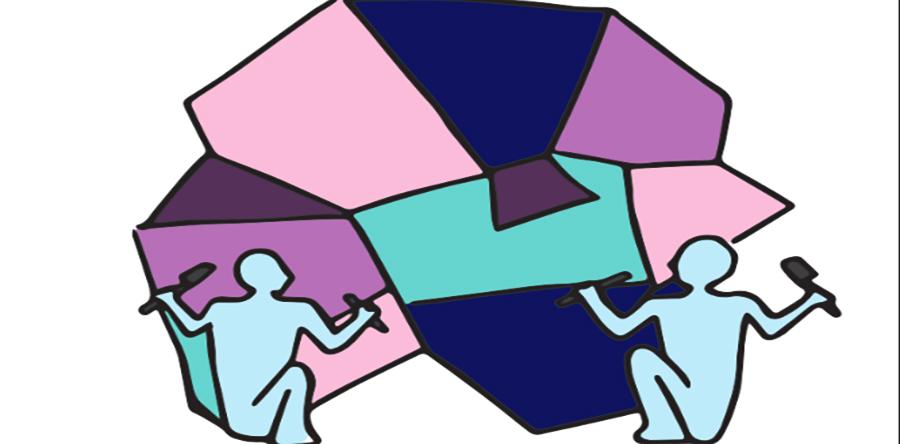Your donation will support the student journalists of Omaha Westside High School. Your contribution will allow us to purchase equipment and cover our annual website hosting costs.
The Search for Unity
October 27, 2016
Religious tolerance is not an easy subject to simply begin talking about. The first religion is theorized to be Hinduism, which was founded in as early as 2300-1500 BC (according to The Ancient Encyclopedia and CNN) and it’s still practiced today. These ancient meanings and historical roots show a depth of belief systems that make the subject of religion not something to be taken lightly. Religion at its core is so sacred to so many that it can be at times, a touchy subject. Religion can give meaning to existence, bring peace, and unite people under a common belief system. Yet there are constant wars bring fought over it. Some of the largest mass killings in history were said to have been done in the name of religion. According to a study on the parallels of religion and war published in the Huffington post; approximately 1-3 million were killed in the crusades, 3 thousand killed by the inquisition and nearly 6 million killed in the Holocaust.
The openness and comfort searched for in religion is sometimes taken advantage of. Especially the populations that society leaves vulnerable. In a story covered by CNN, March 8, 2016, two pastors in Phoenix, Arizona were found guilty of laundering money and then were also alleged to run a “food stamp swindle” with prejudice against the lower income communities. Women and children are exploited as well. Like in the breaking news story covered by The Washington Post that put a spot light on sexual abuse of minors and women in the Catholic Church.
“The sexist bullshit inevitably slips in through all the human finger prints that leave their mark on texts like the bible and systems like the church.” Said Debra McKnight, founding pastor of Urban Abbey, a non-profit coffee shop and church in Omaha, Nebraska’s Old Market.
However, as often as the bad in religion happens, the good in religion can usually be seen shining through. A story written by The Huffington Post called “Yes, Religion Can Still Be a Force for Good In The World” talks about how religion has helped former gang-involved youth be given a second chance, provided trainings and support for those with disabilities, inspired kids to take care of the environment, trained churches on how to address HIV in their communities and so much more. Religion can be a bright and amazing beacon in our dark world. But it can’t be this light with the extremism that sometimes over shadows it.
In situations of religious intolerance there seems to be two outcomes. First, movements towards conversion, or the spreading of one’s religion to other populations. To some, there’s an unalterable belief that there’s only one way to look at the world and anyone who looks at it differently is wrong.
Secondly, violence can be the result as the level of intolerance increases. When everyone is fighting and chaos ensues it’s hard to distinguish right from wrong. According to Gettysburg.edu when the Spanish first came to north America they used violence such as brutal beatings or mass hanging as the means of spreading Christianity. Entire cultures have been lost to this “burn and rebuild” way of thinking. Spiritual violence is not the point of religion. “Violence is an ugly manipulation of the many spiritual practices of the world.” Said McKnight.
But Religion must not be defined by it’s body count, nor any extremist followers. Buddha once said “Be kind to all creatures; this is the true religion.” And there are many people and organizations working hard to create a more open environment in religion. One of these is the Tri-Faith initiative in Omaha, NE. In a story by NPR, they are described as building one home for three faiths. A mosque, a synagogue and a church will all share residence in this peaceful co-existence. “I value spirituality and religion in a community, because if I just pick and choose my own bouquet of spirituality (picking this but not that).” McKnight said. “Then there are no roots and the whole thing [will] wilt [in] the way I leave flowers in a vase too long.”
There is no one right way to live. Your life and other’s lives are lived completely different. According to Reference.com there are over 4,200 different religions in this world, maybe more. Religion can be a way we learn to live with ourselves, carve out right from wrong, and give us a clear conscience and peace of mind in life. The universe is unfathomably enormous and we have little affect on what happens. In such an unpredictable world, religion can be our way of finding comfort. According to University Today, the Earth has been around for 4.54 billion years, and modern humans for only 200,000 years. We are so incredibly new, like specks of dust in an endless chasm, looking hopefully for any light that can be found.
What if we celebrated anyone who’s able to look at the world in a way that makes sense to them? Whether that’s in a god, a soul, an animal, an idol, in science, or even nothing. What if we celebrated those brave souls who dare to look into the universe and smile with curiosity? “It can be brave to lean into vulnerability when the world around us chooses violence, control and dehumanization.” McKnight said.
What if religion was not dividing, but unifying? For many, religion is a central part of their being and living. How is it that religion is so paralleled with violence and just as much with joy? It is possible to be unified in different beliefs, be implored to see different religions in this World as sacred and to find joy in the variety of the amazing, inquisitive people in this world in which we live.

